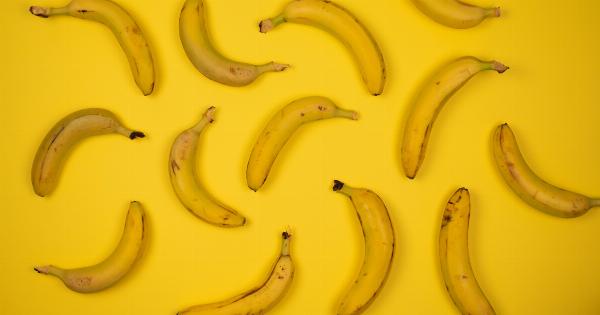When it comes to eating healthy, a lot of people rely on a list of “healthy” foods that they can incorporate into their diet. However, not everything on that list is actually good for you.
In fact, there are several foods that are marketed as healthy but can actually be detrimental to your health. In this article, we’ll explore 30 surprising “healthy” foods that might not be so healthy after all.
1. Granola
Granola seems like a healthy option for breakfast or a snack, but it’s often high in sugar and calories. Even the “low-fat” versions can have added sugars and oils that make it more unhealthy than you might think.
2. Flavored Yogurt
Yogurt is a great source of probiotics and protein, but flavored versions can be loaded with added sugars and artificial ingredients. Opt for plain yogurt and add your own fruit or honey for sweetness.
3. Smoothie Bowls
Smoothie bowls have become a trendy breakfast option, but many of them are loaded with added sugars and toppings like granola or chocolate chips that make them more like a dessert than a healthy meal.
4. Agave Nectar
Agave nectar is marketed as a healthier alternative to sugar because it has a lower glycemic index. However, it’s actually higher in fructose than regular sugar and can lead to weight gain and other health issues if consumed in excess.
5. Dried Fruit
Dried fruit may seem like a healthy snack option, but it’s often loaded with added sugars and can be high in calories. Plus, the drying process removes a lot of the fruit’s water content and nutrients, making it less healthy than fresh fruit.
6. Almond Milk
Almond milk is a popular dairy-free alternative, but many store-bought versions are loaded with added sugars to improve the taste. Opt for unsweetened varieties or make your own at home to ensure it’s a healthy option.
7. Protein Bars
Protein bars are a convenient snack option for on-the-go, but many of them are loaded with added sugars and artificial ingredients. Read the labels carefully and opt for bars with simple, natural ingredients.
8. Gluten-Free Foods
Gluten-free has become a buzzword for a lot of people, but many gluten-free products are actually higher in sugar and calories than their gluten-containing counterparts.
Plus, if you don’t have a medical reason to avoid gluten, it’s not necessary for your health.
9. Veggie Chips
Veggie chips are often marketed as a healthier alternative to potato chips, but many of them are actually made with potato starch or corn flour and have added oils and salt. Opt for baked sweet potato or kale chips instead.
10. Pre-Packaged Salads
Pre-packaged salads are a convenient option for lunch, but they often have added sugars and preservatives to extend their shelf life. Make your own salads at home with fresh ingredients to ensure they’re a healthy option.
11. Trail Mix
Trail mix can be a healthy snack option, but many store-bought versions are loaded with added sugars and unhealthy fats. Look for trail mix with raw nuts and seeds and little added sugar.
12. Coconut Oil
Coconut oil has been touted as a healthy alternative to other oils, but it’s actually high in saturated fat and can increase your cholesterol levels. Use it sparingly or opt for healthier oils like olive or avocado.
13. Store-Bought Smoothies
Store-bought smoothies may seem like a healthy option, but they’re often loaded with added sugars and can be high in calories. Make your own at home with fresh ingredients to ensure they’re a healthy option.
14. Energy Drinks
Energy drinks are loaded with caffeine and sugar to give you a quick energy boost, but they can be detrimental to your health. They can cause dehydration, heart palpitations, and weight gain if consumed in excess.
15. Fruit Juice
Fruit juice may seem like a healthy option, but it’s often loaded with added sugars and lacks the fiber and nutrients of whole fruit. Opt for whole fruit or make your own juice at home with a juicer.
16. Low-Calorie Snacks
Low-calorie snacks like rice cakes or low-fat popcorn may seem like a healthy option, but they’re often loaded with artificial ingredients and preservatives. Opt for whole foods like fruit or nuts instead.
17. Organic Cookies
Organic cookies may seem like a healthier alternative to regular cookies, but they’re still high in sugar and calories. They may also contain excessive amounts of saturated fat. Opt for homemade treats using natural ingredients and sweeteners.
18. Soy Products
Soy products like tofu and soy milk are often marketed as a healthier alternative to animal products, but they can be detrimental to your health in excess. They can interfere with hormone production and digestion if consumed in large quantities.
19. Frozen Yogurt
Frozen yogurt may seem like a healthier alternative to ice cream, but it’s often loaded with added sugars and artificial ingredients. Opt for a small serving of real ice cream or make your own frozen treats at home with natural ingredients.
20. Sports Drinks
Sports drinks like Gatorade or Powerade are marketed as a way to replenish electrolytes and fluids after exercise, but they’re often high in sugar and unnecessary for most people. Opt for water or a homemade electrolyte drink instead.
21. Multigrain Bread
Multigrain bread may seem like a healthier alternative to white bread, but many store-bought versions are actually made with refined flours and have added sugars. Opt for whole grain bread made with minimally processed grains.
22. Fruit Smoothies
Fruit smoothies may seem like a healthy breakfast or snack option, but they can be loaded with added sugars and lack the fiber of whole fruit. Opt for smoothies with minimal added sugars and add greens or other veggies for added nutrition.
23. Breakfast Cereals
Breakfast cereals are often marketed as a healthy option, but many of them are loaded with added sugars and lack the essential nutrients your body needs.
Opt for whole grain cereals with minimal added sugars and add your own fruit or nuts for added nutrition.
24. Veggie Burgers
Veggie burgers may seem like a healthier alternative to regular burgers, but many store-bought versions are actually loaded with preservatives and artificial ingredients.
Opt for homemade veggie burgers made with natural ingredients like beans or quinoa.
25. Protein Powder
Protein powder can be a convenient way to supplement your diet with extra protein, but many store-bought varieties are loaded with artificial sweeteners and other additives.
Opt for natural protein powders made with simple ingredients like whey or plant-based protein sources.
26. Fruit Snacks
Fruit snacks may seem like a healthy form of candy, but they’re often loaded with added sugars and lack the fiber and nutrients of whole fruit. Opt for real fruit or homemade fruit snacks made with natural sweeteners.
27. Baked Chips
Baked chips may seem like a healthier alternative to regular potato chips, but they’re often made with refined flours and have added oils and salt. Opt for whole food options like fresh veggies or whole grain crackers.
28. Low-Fat Foods
Low-fat foods are often marketed as a healthy option, but they’re often loaded with added sugars and other unhealthy additives to improve the taste. Opt for whole foods with healthy fats like avocados or nuts.
29. Bottled Water
Bottled water may seem like a healthy alternative to tap water, but it’s often sourced from questionable locations and can contain harmful chemicals from the plastic bottle. Opt for filtered tap water or invest in a reusable water bottle.
30. Sushi Rolls
Sushi rolls may seem like a healthy option, but many of them are loaded with fried or sugary ingredients that make them more like a treat than a healthy meal. Opt for sushi rolls with fresh fish and minimal added ingredients.
Conclusion
When it comes to eating healthy, it’s important to be aware of the marketing tactics used to promote certain foods as “healthy” when they’re actually not.
These 30 surprising “healthy” foods are just a few examples of products that are marketed as good for you but can actually be detrimental to your health if consumed in excess. Stick to whole foods with minimal added sugars and preservatives to ensure you’re making the healthiest choices for your body.





























